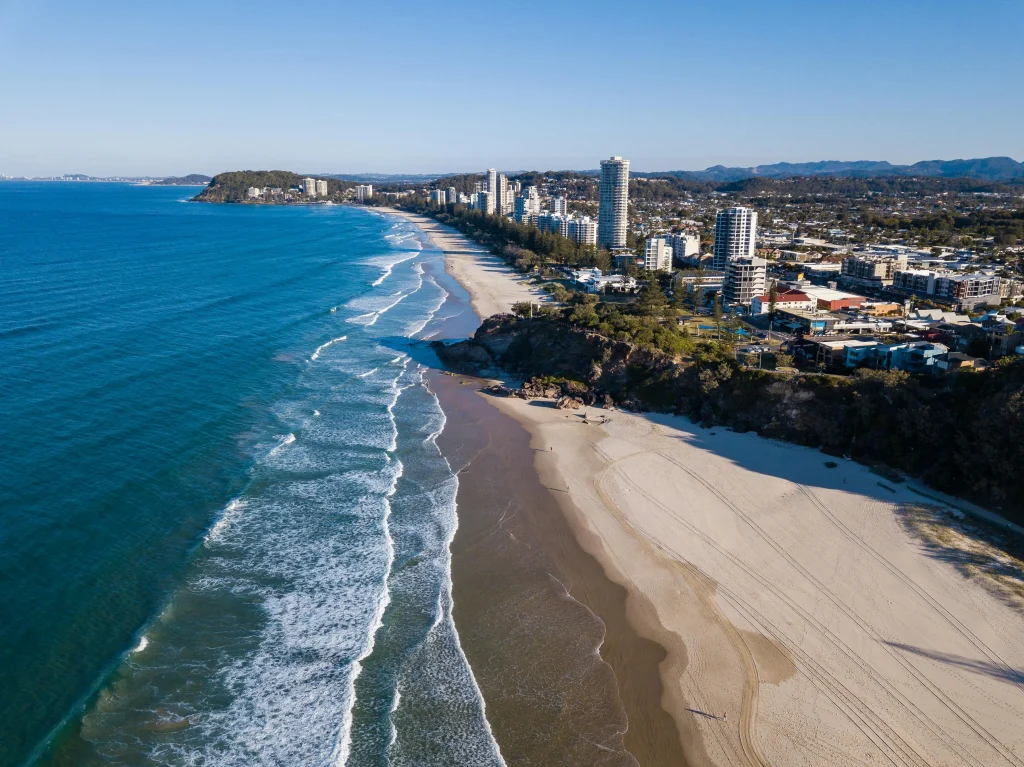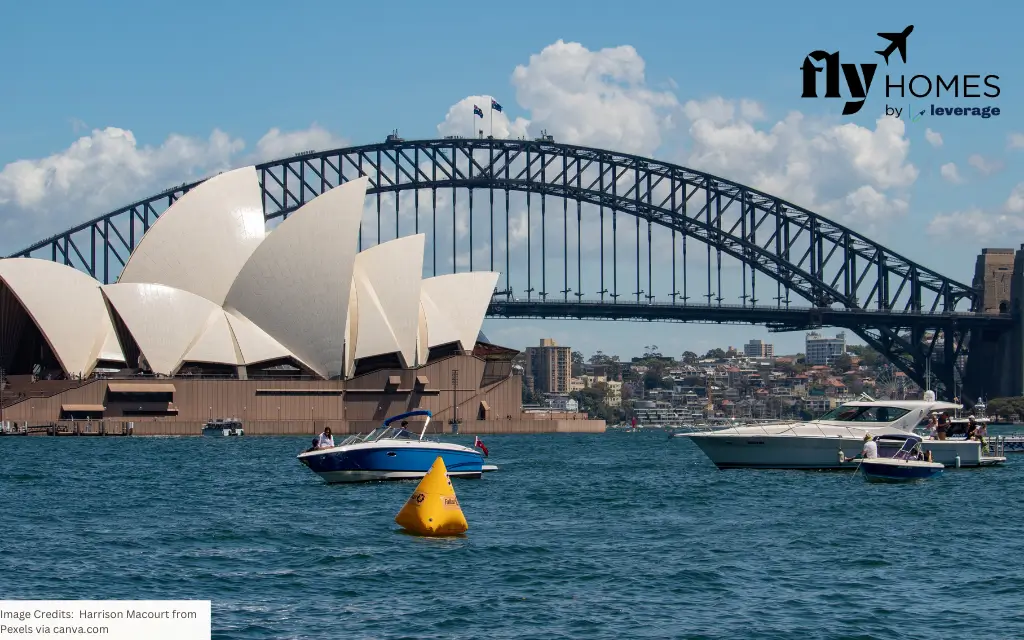Pros and Cons of Living in Australia: Australia is a dream destination for many international students, known for its world-class education, high quality of life, and diverse cultural experiences. In 2025, it continues to attract students from around the globe, offering excellent academic opportunities and promising career prospects. However, like any country, it has both advantages and challenges. Understanding the pros and cons of living in Australia is essential for students planning to study there.
While Australia offers top-tier universities and post-study work options, students must also consider factors such as high living costs and strict visa regulations. This guide explores the Pros and Cons of Living in Australia for international students, helping you make an informed decision about whether it’s the right destination for your academic and career goals.
Table of Contents
Pros and Cons of Living in Australia in 2025
If you’re planning to move to Australia from India or any other country, it’s essential to understand both the benefits and challenges of life in this vibrant nation. Known for its high quality of life, excellent job opportunities, and stunning natural beauty, Australia attracts thousands of immigrants every year. However, factors like the high cost of living, competitive job market, and strict visa requirements can pose challenges. Here’s a detailed look at the pros and cons of living in Australia in 2025 to help you decide if it’s the right place for you.
| Pros | Cons |
| High Quality of Life – Australia offers excellent healthcare, education, and infrastructure, making it one of the most livable countries. | High Cost of Living – Major cities like Sydney and Melbourne have expensive housing, groceries, and services. |
| Strong Economy & Job Opportunities – The country has a robust job market, particularly in tech, healthcare, and engineering. | Competitive Job Market for Expats – Some industries require local experience, and visa policies can be strict. |
| Beautiful Natural Landscapes – From the Great Barrier Reef to the Outback, Australia boasts stunning scenery and outdoor activities. | Extreme Weather & Natural Disasters – Bushfires, heatwaves, and floods can be a concern in certain regions. |
| Multicultural Society – A diverse and welcoming culture with a high standard of inclusivity and equality. | Distance from Other Countries – Long travel times to Europe and North America make visiting family abroad expensive. |
| Universal Healthcare System – Medicare provides affordable healthcare for residents and citizens. | Limited Public Transport in Some Areas – Outside major cities, public transport options can be lacking. |
| Work-Life Balance – Australia promotes a relaxed lifestyle with strong labor rights and vacation policies. | Strict Immigration Rules – Getting permanent residency or citizenship can be challenging due to changing visa policies. |
| Warm Climate & Outdoor Lifestyle – Many regions enjoy sunny weather, perfect for beaches and outdoor activities. | Dangerous Wildlife – Some areas have risks from snakes, spiders, sharks, and other wildlife. |
Pros of Living in Australia

Living in Australia offers numerous advantages, from a high standard of living to excellent career opportunities. With its world-class healthcare system, diverse cultural environment, and stunning natural landscapes, Australia provides an ideal setting for both professionals and families. Here are some key benefits of living in Australia in 2025.
1. World-Class Education System
Australia is home to some of the top universities in the world, including the University of Melbourne, Australian National University (ANU), and the University of Sydney. These institutions are renowned for their world-class education, cutting-edge research, and strong global rankings, making Australia a top destination for international students. The pros and cons of living in Australia include access to a globally recognized degree, which enhances career prospects for graduates and opens doors to job opportunities worldwide.
2. Post-Study Work Opportunities
One of the biggest advantages for students is Australia’s post-study work visa policies. After completing their studies, international students can apply for the Temporary Graduate Visa (subclass 485), which allows them to gain valuable work experience in Australia for up to four years, depending on their qualifications. When considering the pros and cons of living in Australia, this work opportunity makes the country an attractive choice for those who wish to gain international work exposure and enhance their resumes.
3. Safe and Multicultural Environment
Australia is known for its welcoming and diverse society. With over 30% of the population being born overseas, international students can feel at home in this multicultural environment. The country also has strict safety regulations, ensuring a secure living experience for students. While exploring the pros and cons of living in Australia, it is important to note that this cultural diversity fosters an inclusive atmosphere, making adaptation easier for newcomers.
4. High Quality of Life
Australia consistently ranks high in global quality of life indexes. The country offers excellent healthcare, modern infrastructure, and a clean environment. Cities like Sydney, Melbourne, and Brisbane provide a great mix of urban living and nature, making life enjoyable for students. As part of the pros and cons of living in Australia, the high quality of life is a major advantage, although it often comes at a significant financial cost.
5. Beautiful Natural Landscapes and Outdoor Activities
From the Great Barrier Reef to the vast Outback, Australia is a paradise for nature lovers. Students can enjoy outdoor activities such as hiking, surfing, and camping during their free time. The pleasant climate in many regions allows for year-round outdoor adventures. The pros and cons of living in Australia include access to these breathtaking landscapes, but students should also prepare for extreme weather conditions in some parts of the country.
Also Read:
- Working Hours for Students in Australia: Rules, Limits, Guidelines
- MBBS in Australia for Indian Students: Everything You Need to Know
6. Part-Time Work Opportunities for Students
International students in Australia can work up to 48 hours per fortnight during their academic term and unlimited hours during semester breaks. This allows students to gain work experience and support their living expenses while studying. When weighing the pros and cons of living in Australia, this ability to work part-time is beneficial but may also be challenging due to competition and limited job availability in certain areas.
Cons of Living in Australia

While Australia offers many benefits, it also comes with certain challenges that potential immigrants should consider. From the high cost of living to strict immigration policies and extreme weather conditions, adjusting to life in Australia can be difficult for some. Here are some of the key drawbacks of living in Australia in 2025.
1. High Cost of Living
Australia is one of the most expensive countries in the world. Cities like Sydney and Melbourne have high rental costs, with a one-bedroom apartment in the city center costing around AUD 2,500–3,500 per month. Everyday expenses, including groceries, transportation, and entertainment, can also be costly for students. The pros and cons of living in Australia should include a strong emphasis on financial planning, as students must ensure they have enough funds to support themselves.
2. Expensive Tuition Fees for International Students
While Australia offers top-quality education, tuition fees for international students can be quite high. Depending on the university and course, undergraduate degrees can cost between AUD 20,000 and AUD 45,000 per year, while postgraduate courses may be even more expensive. Scholarships are available but highly competitive. As part of the pros and cons of living in Australia, students should carefully consider their budget and explore financial aid options to mitigate the high education costs.
3. Strict Visa and Immigration Policies
Obtaining a student visa for Australia requires meeting several requirements, including proof of financial stability, English proficiency, and health insurance. The visa process can be complex, and failing to comply with visa regulations may result in visa cancellation. The pros and cons of living in Australia include having access to a structured immigration system, but students must navigate the process carefully to ensure compliance and avoid legal complications.
4. Limited Public Transport in Some Areas
While major cities have well-developed public transport networks, regional areas may have limited options. Students living outside city centers may find it challenging to commute to universities, requiring them to invest in a car or rely on costly transportation options. Among the pros and cons of living in Australia, this is an important factor to consider, especially for students who prefer affordable and efficient mobility options.
5. Extreme Weather Conditions
Australia experiences diverse weather conditions, including extreme heat, bushfires, and floods in certain regions. The high UV index also increases the risk of sunburn and skin-related issues, making sun protection essential for students. The pros and cons of living in Australia must account for these environmental factors, as students should be prepared to adapt to unpredictable weather patterns throughout the year.
6. Distance from Home Countries
For international students, Australia’s geographical location can be a challenge. Long travel times and expensive airfare make it difficult to visit family frequently. The time difference can also impact communication with loved ones in other countries. As part of the pros and cons of living in Australia, the distance from home is a significant drawback for students who prioritise regular family visits and staying connected with their home culture.
Also Read:
- Daylight Saving in Australia: Know Exact DST Australia in 2025
- Letter of Recommendation for Masters: Importance, Format and Samples
Is Australia the Right Choice for Students?
Living in Australia offers international students incredible academic opportunities, a safe and diverse environment, and numerous career prospects. However, the high cost of living, tuition fees, and visa regulations should be carefully considered before making the move. The pros and cons of living in Australia highlight both the rewards and challenges of studying in this country, making it crucial for students to prepare in advance.
If you’re planning to study in Australia, thorough research and financial planning are key. Look for scholarships, budget wisely, and choose the right city based on your preferences and lifestyle. By preparing well, students can make the most of their time in Australia and enjoy a rewarding educational experience.
Key Factors to Consider Before Moving to Australia
Before making the move to Australia, it’s important to evaluate several key factors that can impact your experience. From visa requirements and job opportunities to the cost of living and cultural differences, understanding these aspects will help you transition smoothly. Here are the essential things to consider before relocating to Australia in 2025.
- Visa and Immigration Policies – Australia has strict immigration rules, and securing a visa can be challenging. Ensure you understand the requirements for skilled migration, student visas, or permanent residency.
- Cost of Living – Major cities like Sydney and Melbourne have a high cost of living, especially for housing and daily expenses. Research your budget and potential expenses before moving.
- Job Market and Career Opportunities – While Australia offers great job prospects in industries like healthcare, IT, and engineering, competition can be tough. Ensure your qualifications are recognized and research job availability in your field.
- Healthcare System – Australia has a world-class healthcare system, with Medicare providing subsidized medical services. However, private health insurance may be necessary for some visa holders.
- Climate and Weather Conditions – Australia has diverse weather patterns, from extreme heat in the outback to temperate coastal climates. Be prepared for weather conditions based on your chosen city.
- Education System – If you’re moving with family, consider Australia’s excellent education system, including top universities and high-quality public and private schools.
- Cultural Adaptation and Lifestyle – Australia has a diverse and multicultural society, but adapting to new customs, accents, and social norms can take time.
- Public Transport and Infrastructure – While cities like Sydney and Melbourne have efficient public transport, regional areas may have limited options, making car ownership essential.
- Safety and Quality of Life – Australia is known for its high safety standards, low crime rates, and overall excellent quality of life, making it a desirable place to live.
- Taxation and Financial Planning – Understanding Australia’s tax system, superannuation (retirement savings), and financial obligations is crucial for managing your finances effectively.
Tips for International Students Moving to Australia
Starting a new life in Australia is exciting, but it can also feel overwhelming. From visas to accommodation, banking to making friends, there’s a lot to figure out. To help you settle in smoothly, here are some essential tips every international student should know.
- Get Your Visa & Insurance – Make sure you have a student visa (Subclass 500) and health insurance (OSHC).
- Find a Place to Stay – Choose between university housing, shared apartments, or homestays.
- Set Up Banking & Phone – Open a bank account and get a local SIM card (Telstra, Optus, Vodafone).
- Use Public Transport – Get a student travel card (Opal in NSW, Myki in VIC) for discounts.
- Manage Your Money – Australia is expensive, so save by cooking at home and using student discounts.
- Focus on Studies – Attend classes, use the library, and ask for help when needed.
- Find a Part-Time Job – You can work 48 hours every two weeks and full-time during holidays.
- Know Healthcare Services – Visit bulk-billing doctors to save on medical costs.
- Make Friends & Explore – Join university clubs, events, and meet new people.
- Enjoy Australian Life – Experience the beaches, parks, food, and friendly culture.
We hope you enjoyed reading our blog on the Pros and Cons of Living in Australia. For a stress-free stay during your study abroad adventure, choose Fly Homes. Call 1800572118 to reserve your ideal student accommodation abroad with ease.
FAQs
Pros: Australia offers a high quality of life, top-ranked universities, a multicultural environment, and excellent post-study work opportunities. It also has a strong job market and stunning natural landscapes.
Cons: The cost of living is high, particularly in major cities like Sydney and Melbourne. Tuition fees for international students can be expensive, and visa regulations can be strict. Some students may also find it challenging to adjust to extreme weather and long travel distances from their home country.
Yes, Australia remains one of the top study destinations in 2025 due to its high-quality education, post-study work opportunities, and diverse cultural environment. Universities like the University of Melbourne, Australian National University (ANU), and the University of Sydney consistently rank among the best globally, attracting students from all over the world.
Some key advantages include access to world-class universities, post-study work opportunities, a high standard of living, a multicultural society, and breathtaking natural landscapes. The country also has a strong job market, allowing students to gain valuable work experience.
The biggest challenges include the high cost of living, expensive tuition fees, strict visa and immigration policies, extreme weather conditions, and a competitive job market. Additionally, students may find it difficult to adjust to Australia’s cultural and social norms.
The cost of living in Australia is relatively high, especially in cities like Sydney and Melbourne. Rent for a one-bedroom apartment in the city center can range between AUD 2,500–3,500 per month, and daily expenses such as groceries, transport, and entertainment add to the costs. Proper financial planning is essential.
Many students work part-time jobs to support their living expenses. Australia allows international students to work up to 48 hours per fortnight during their academic term and full-time during semester breaks. However, job competition can be high, so securing employment may take time.
Sydney, Melbourne, Brisbane, Adelaide, and Perth are among the most popular cities for students. Each city has its own advantages—Melbourne is known for its student-friendly environment, Sydney offers great job opportunities, and Brisbane has a lower cost of living.
Yes, Australia offers post-study work visas, such as the Temporary Graduate Visa (subclass 485), which allows students to stay and work in Australia for up to four years, depending on their qualifications. This is a great opportunity to gain work experience and potentially apply for permanent residency.
Australia has a high cost of living, similar to cities in the USA, UK, and Canada. Rent in Sydney and Melbourne can be among the highest in the world, and groceries, dining, and transportation costs are also expensive. However, salaries are generally high, and public services such as healthcare are of excellent quality.
Australia has a strong job market, especially in industries like healthcare, IT, engineering, and construction. However, competition for jobs can be tough, and employers may prefer candidates with local experience. Expats and international workers often need to ensure they have the right visa to work legally.
Follow Us on Social Media




























